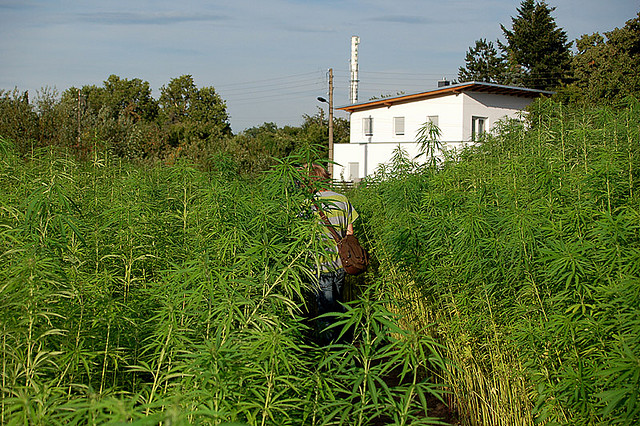ST. PAUL, Minn. – Farmers in Minnesota will grow more hemp than ever before in Minnesota as part of the the Minnesota Department of Agriculture’s (MDA) pilot program.
Hemp is closely related to marijuana. The concentration of THC that gives marijuana its more notorious properties is very low in hemp, to the point of uselessness for drug users, and is regulated to maintain that status. The U.S. Drug Enforcement Agency (DEA) still classifies hemp as a Schedule I controlled substance. Hemp’s uses lean more towards health food and cosmetic use of seeds; and use of plant fiber for ropes, canvas, and other products.
Minnesota’s program started small last year, with seven growers working just 37 acres MDA Assistant Commissioner Andrea Vaubel told Alpha News. This year she says the program includes 42 growers covering 2,100 acres across the state.
“It’s certainly a big jump, we weren’t sure what to expect,” Vaubel said, “I think it’s helping that folks are starting to learn the difference between industrial hemp and marijuana.”
Farmers who wanted to grow hemp had to file an application with MDA. This included a detailed plan of the growing conditions, what research the farmer planned to do with the crop, and a background check of those involved. Vrabel said that applicants had a very high acceptance rate, though she was not sure of the exact numbers.
Farmers must collect their seeds from the MDA, which the DEA has cleared as a delivery point for the controlled seeds.
Last year some farmers further north in Minnesota experienced severe weather related difficulties in growing hemp said Vaubel. Others had much more success with the crop.
“It was the first year so it definitely is still in the process of establishing itself. We had a couple of folks who were just total washouts,” Vaubel said, “But some of our folks were able to harvest some have branded products that they’re selling in shops.”
Growers are required to submit reports to MDA as part of the pilot program. These reports detail the success or failures of growing, harvesting, processing, and selling the crop.
“We anticipate it’ll take a few years to make it a lucrative business but we have a lot of folks who are really dedicated to this,” Vaubel said.





